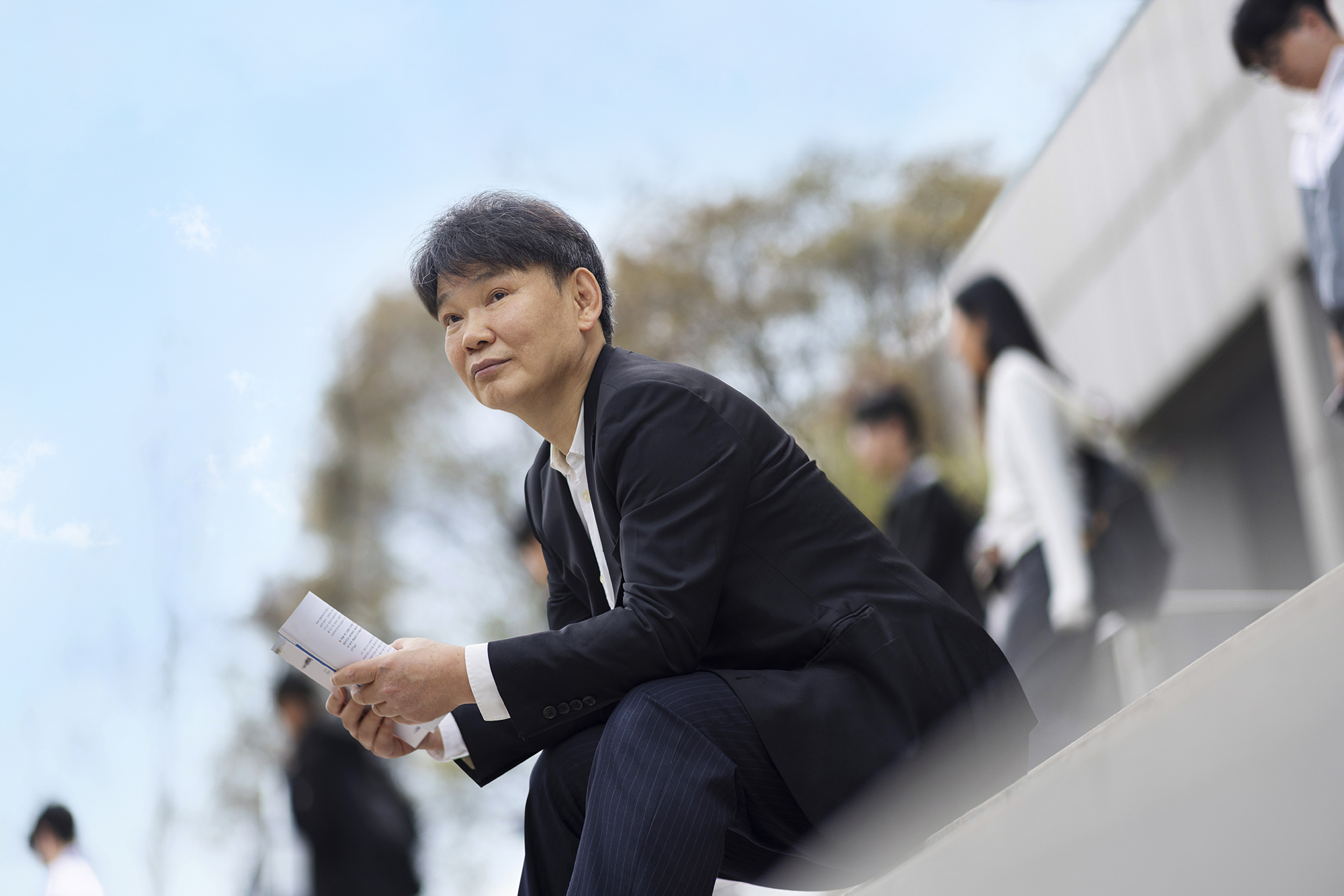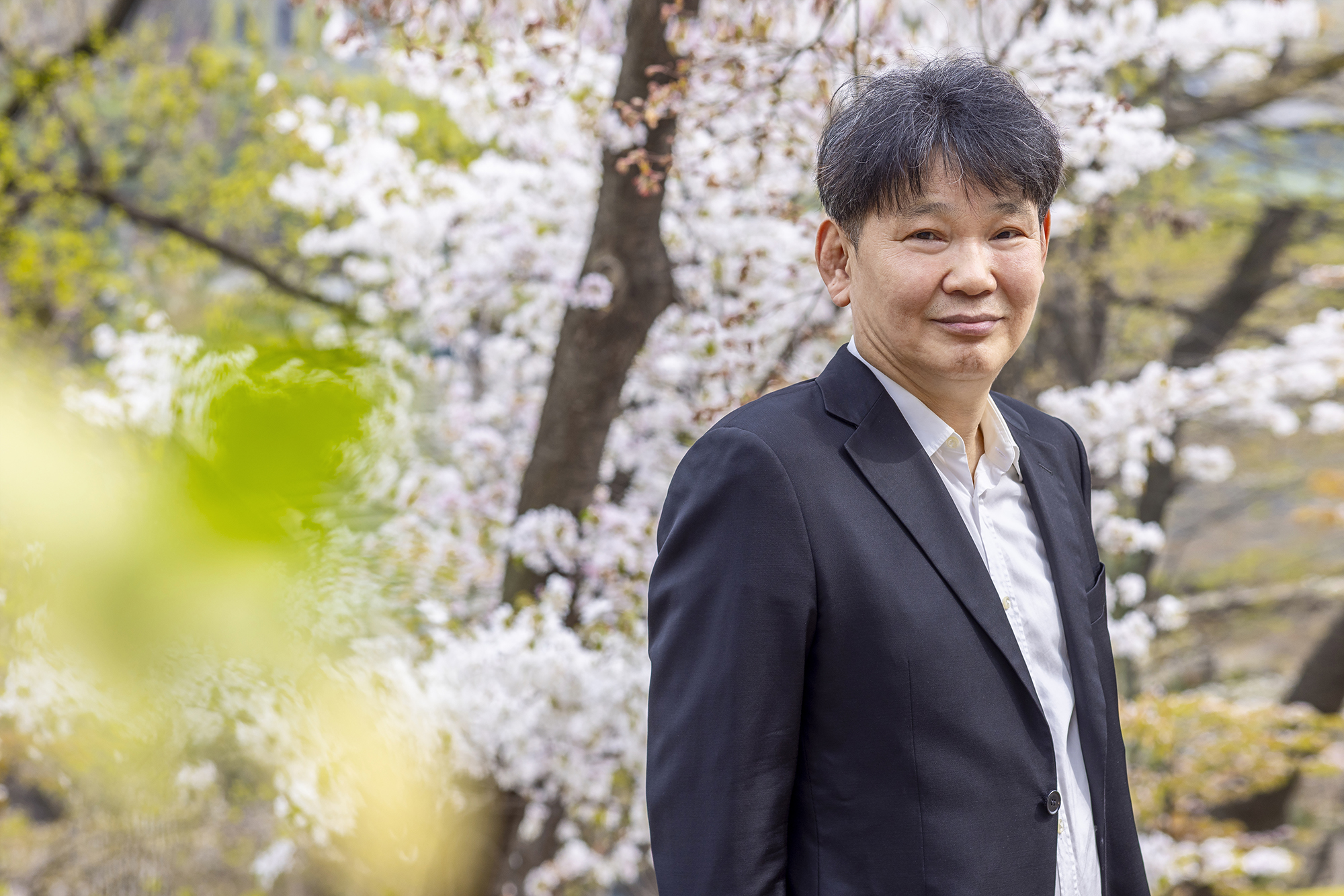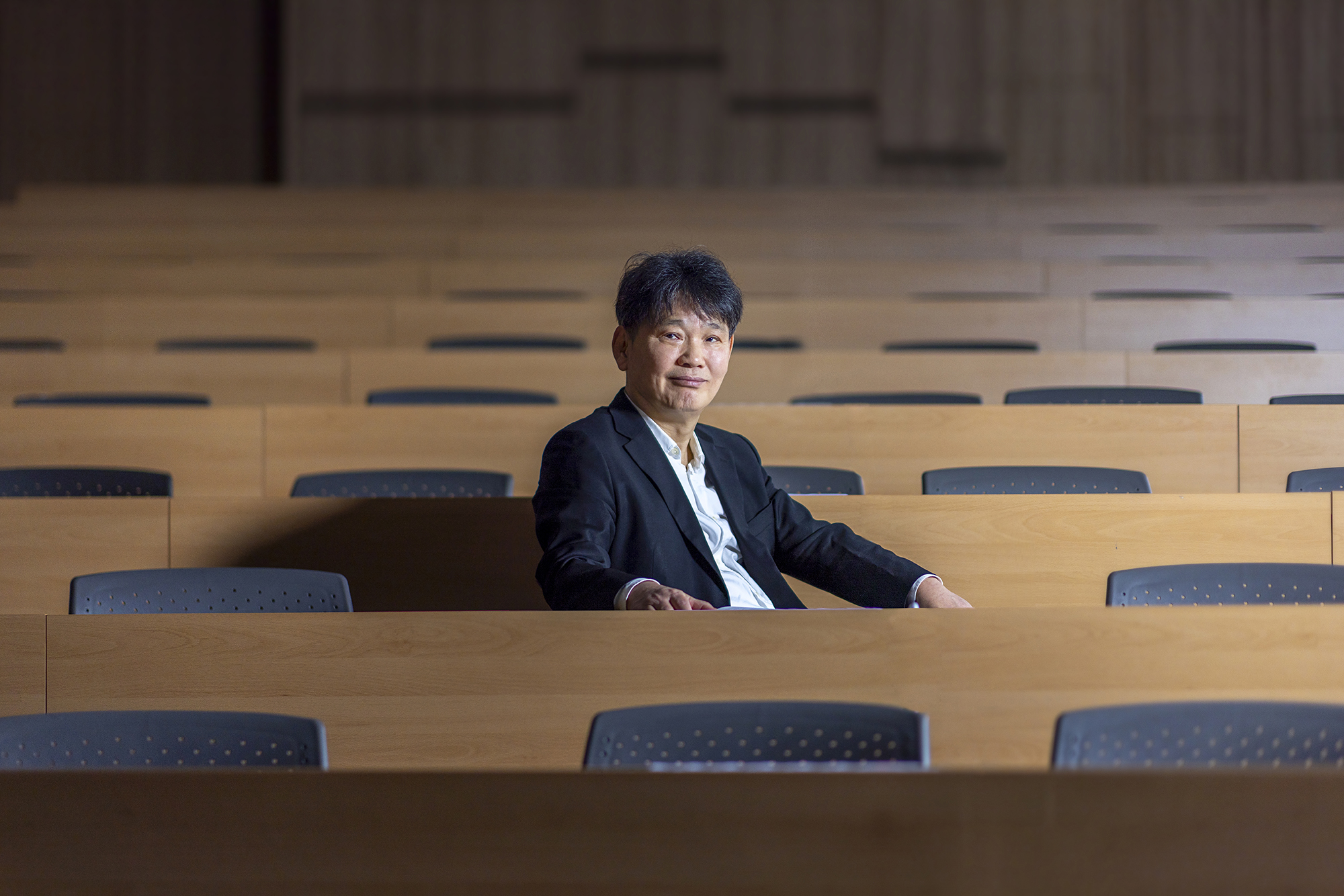- [Humanities Walk] Living in “the Era of Me” May 09, 2024
-
Ho-Ki Kim, Professor of Social Sciences

I have been teaching social sciences for 33 years since becoming an assistant professor in 1992. Having studied social sciences for 45 years since I was a college student in 1979, I can conclude that sociological reasoning forms the most important foundation of my identity. The most significant change over the past 45 years, based on my sociological perspective, is the emergence of the “society of loners.”
The most accurate indicator of “the society of loners” is the prevalence of “single-person households.” Based on Seoul as an example, when I was a sophomore in college in 1980, the proportion of single-person families in the entire population of Seoul was only 4.8%. However, in the year 2000, it increased to 15.5%, and in 2022, an astonishing 38.2% was recorded. The proportion of single-person households in Seoul does not differ significantly from the nationwide proportion.
Europe is a region with a high proportion of single-person households on a global scale. In Sweden, the proportion of single-person households exceeded 50% of the total number of households in 2017. Meanwhile, single-person households constitute 40% of the population in Denmark, Finland, and Germany. South Korea exhibits a similar trend as European countries in terms of household composition.
After graduating from graduate school in 1985, I continued my studies in Germany. At that time, Europe was a foreign place to me. However, countries in the West are currently becoming more similar to Korea in terms of household composition. How should we understand and respond to this trend?

Finding my way through the jungle
As a sociologist, I focus on individualism, which forms the social and cultural foundation of “the society of loners.” Individualism is an attitude that prioritizes individual autonomy. The opposite term is communitarianism, which refers to an attitude that prioritizes the cohesion of communities, such as family, nation, and state, over individual autonomy.
Individualism and liberalism are associated closely, as they both emphasize the inherent autonomy of each individual. These ideologies have formed the foundation of pluralism, which can be considered a characteristic of Western modern society. The remark by sociologist Max Weber at the beginning of the 20th century describes the characteristics of individualism:
“Many ancient gods are rising from their tombs, seeking to dominate our lives and once again engage in eternal struggle with each other.” A society in which everyone becomes a god, in other words, a society where individualism, liberalism, and pluralism form the social and cultural foundation, is the modern society.
The most influential discourse of individualism in the early to mid-20th century was existentialist philosophy, which scrutinized the meaning of existence for individuals amidst the social crises caused by two world wars. The philosophies of Karl Jaspers, Martin Heidegger, Jean-Paul Sartre, and Hannah Arendt allowed one to rediscover the significance of the existential lives of individuals affected by social crises.
According to Arendt, “People who live, move, and act in this world can only experience meaning when they are able to talk to and understand themselves and others.” Genuine communication as well as understanding of the self and others are existential conditions of human beings.
Ulrich Beck, a sociologist, analyzed individualism in the late 20th century from a sociological perspective. Beck is widely known as a theorist of the risk society. The risk society, as described by Beck, refers to the “late modern society,” in which risks such as financial crises, terrorism, and climate change are central to the society. Notably, these risks are indicated at the individual level as well.
Beck’s logic is as follows: Owing to the emergence of the late modern society, individuals become independent beings, although at the expense of their independence, i.e., they become dependent on experts, which threatens their independence. The transition from a socially regulated life to a life requiring self-production, known as the “increase in individualization,” is a new phenomenon in the risk society.
According to Beck, “Individuals must find their own path in this jungle, which is composed of things that will soon disappear, by establishing a clear perspective for themselves.” The individualism of “the society of loners” is ambivalent. It presents a life free from the constraints of the community; however, it is also associated with individuals who must actively construct their life meaning.

The trend of “the society of loners” has increased steadily in the 20th century and in the present 21st century. The causes are diverse. The main factors are the increase in women’s economic participation, family dissolution due to divorce or separation, the increase in elderly single-person households due to aging, and the strengthening of the non-marriage or late-marriage trend among the younger generation.
Societal issues that arise from “the society of loners” are complex and can be caused by several reasons, including economic conditions, population changes, and individualism. Issues gripping the nation such as poverty, employment, and safety in single-person households are increasing and thus must be addressed.
Among these issues, I would like to highlight social loneliness. A common issue among the current society of loners, ranging from the youth to the elderly, is social isolation. As mentioned earlier, for some people, living alone is liberating. However, it induces a sense of loneliness in others.
According to sociologist Siegmund Bauman, who is an observer of “the society of loners,” “We each exist individually, and I perish alone.” The solitude of living alone intensifies social isolation and increases the fear of life. Despite isolation and fear, individualism continues and is particularly prevalent among the younger generation.
Living “separately” and “together”
One can aptly label the abovementioned trend as “the era of me” or the era of “meism.” Meism is an ideology and philosophy that revolves around the following belief, “I am the center of the world, and everything is done for me, by me, and for me.” It reflects “epistemological geocentricism,” as the world revolves around oneself. As humanity progresses through scientific and technological revolutions in the 21st century, the rate of social change is increasing. In fact, this is occurring amidst the strengthening of individual autonomy, thus creating the “era of me.”
“The era of me” is a distinct period characterized by clear contrasts. It is characterized as “the age of self-development,” where one’s vocation and leisure, desires and preferences, and self-esteem and empowerment are the most important aspects in one’s life. Any reforms or revolutions that are not initiated by oneself are meaningless. The existential portrait of “the era of me” is one that values “work-life balance,” “slight but certain happiness for oneself,” procedural fairness, and the organization of one’s life path according to one’s own terms.
In fact, “the era of me” refers to the “era of loners.” Although online relationships abound in this era, people are more accustomed to a solitary lifestyle offline, engaging in activities such as eating, drinking, and watching movies in solitude. “The era of me” is not merely an era of freedom. In fact, it is characterized by uncertainty, anxiety, and frequent feelings of anger amidst the digital transformation promoted by artificial intelligence, platforms, and blockchain.
The advent of “the era of me” implies the decline in the long-standing institution of family that humanity has maintained for a long time. The increasing proportion of single-person households in human society is clear evidence of this trend. Evaluating the increase in the individual “self” and the decline in the collective “family” using only one criterion is challenging. For those who prioritize communitarianism, the disadvantages of “the era of me” will first garner their attention, whereas those who prioritize individualism will first acknowledge the inevitability of “the era of me.”

Here, I would like to focus on the reflective attitude toward “the era of me.” The life of a loner can undoubtedly provide freedom and satisfaction. However, it is simultaneously a solitary and isolated life. Hence, individualism and communitarianism are values that should be pursued concurrently. We should cultivate a new culture in which we can live well both “separately” and “together.”
Additionally, I would like to highlight the importance of the roles of the nation and civil society in “the era of me.” The state and civil society must strengthen social policies to improve the quality of social and economic life to address the increasing prevalence of “the society of loners.” Policies customized to single-person households must be actively developed and implemented to address their demands in areas such as housing, employment, and safety.
In addition to these institutional challenges, individual responses are equally important. In “the era of me,” one’s reflective ability must be cultivated to actively construct the meaning of one’s own life. Furthermore, the capacity of civic culture to restore damaged community bonding must be supported. On a personal level, cultivating the reflective ability of oneself and striving for a civic culture of solidarity on a societal level are becoming increasingly crucial.
We must actively adapt to the current and future changes. In the current 21st century, a value that is more significant than one’s desires, interests, and values does not exist. The existence of “us” is possible because “I” exist. I believe that the future of humanity depends on the manner by which we establish a new society that begins with “me” and progresses toward “us.”
show mobile menu
mobile menu

![[Humanities Walk] Living in “the Era of Me”](/_attach/image/en_sc/2024/05/c2c478fe82485418540bc44d68f4979d.png)


